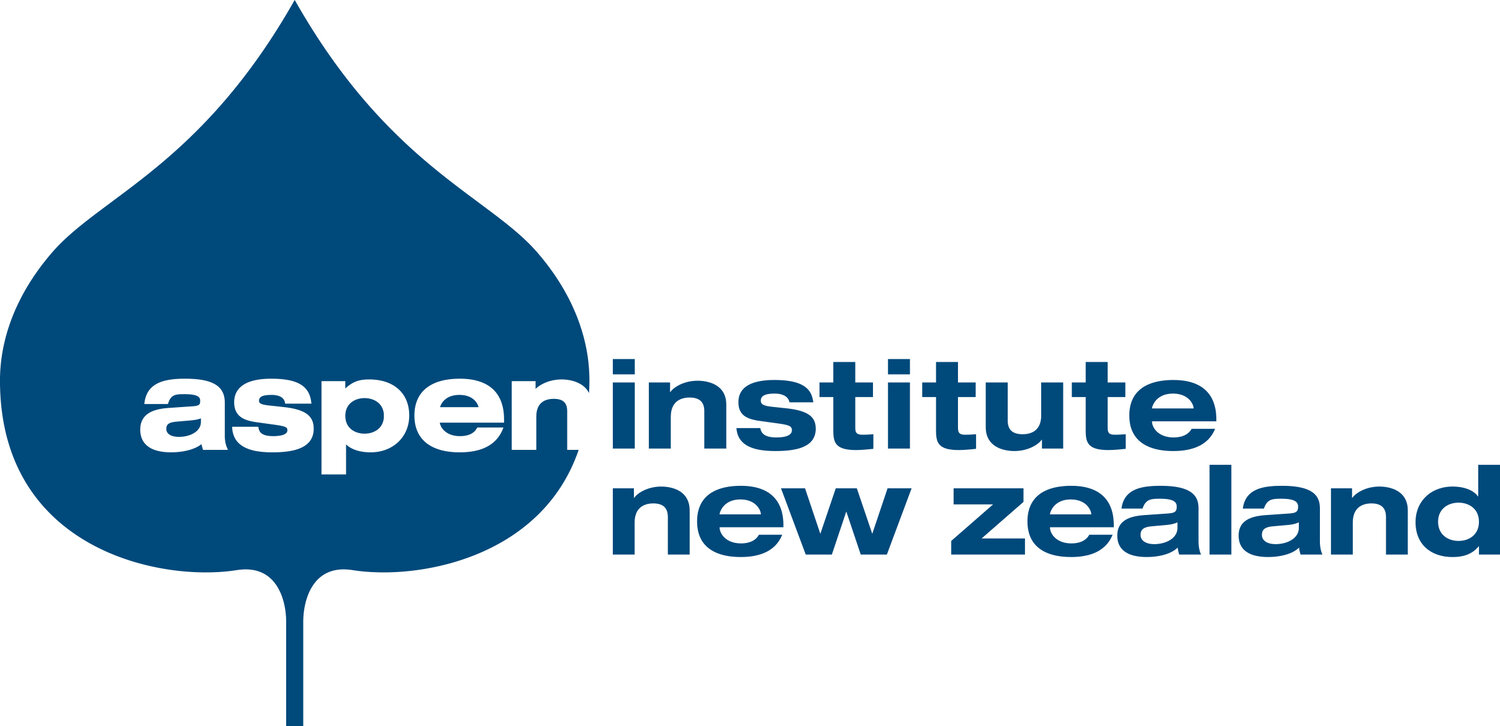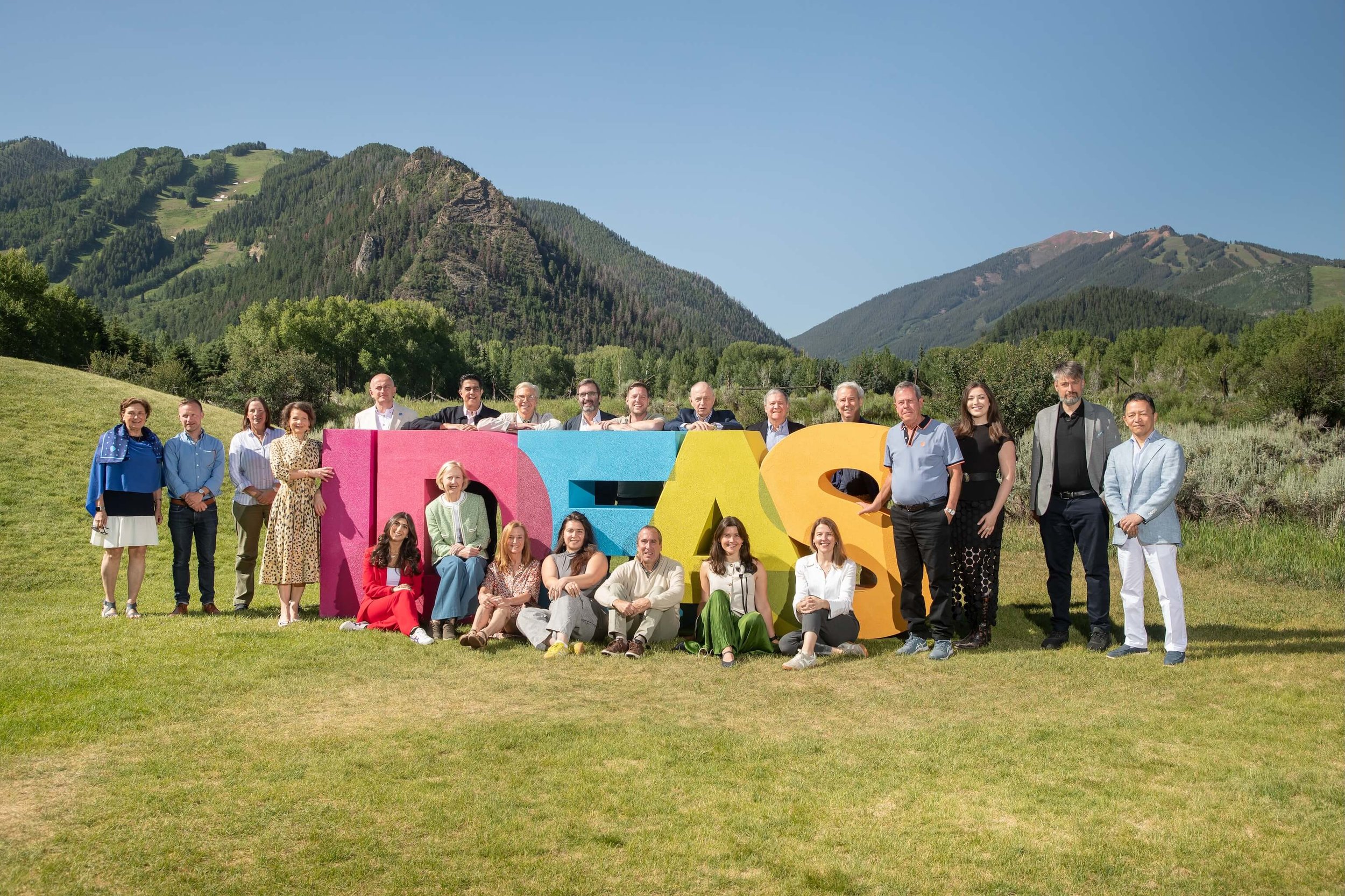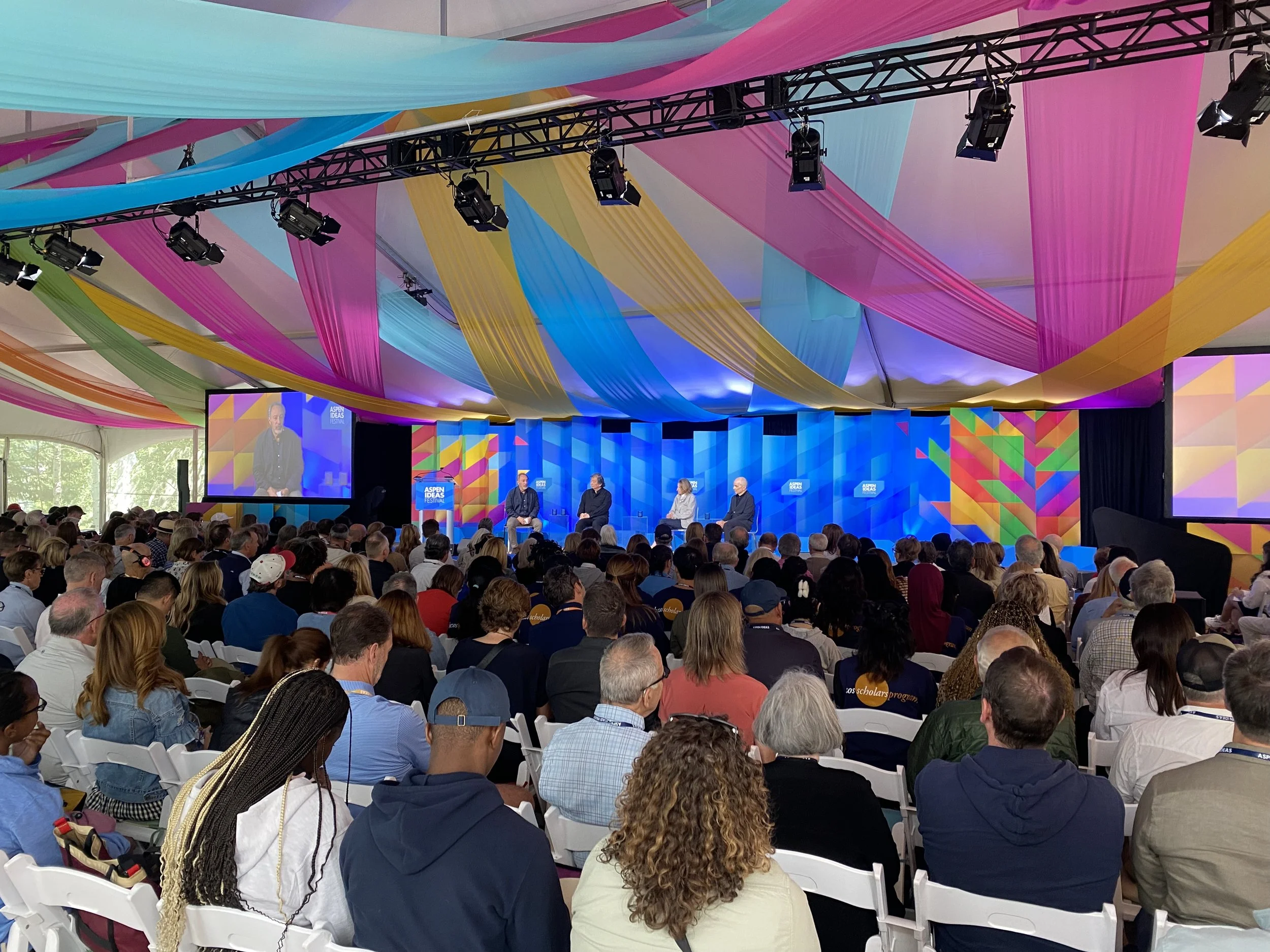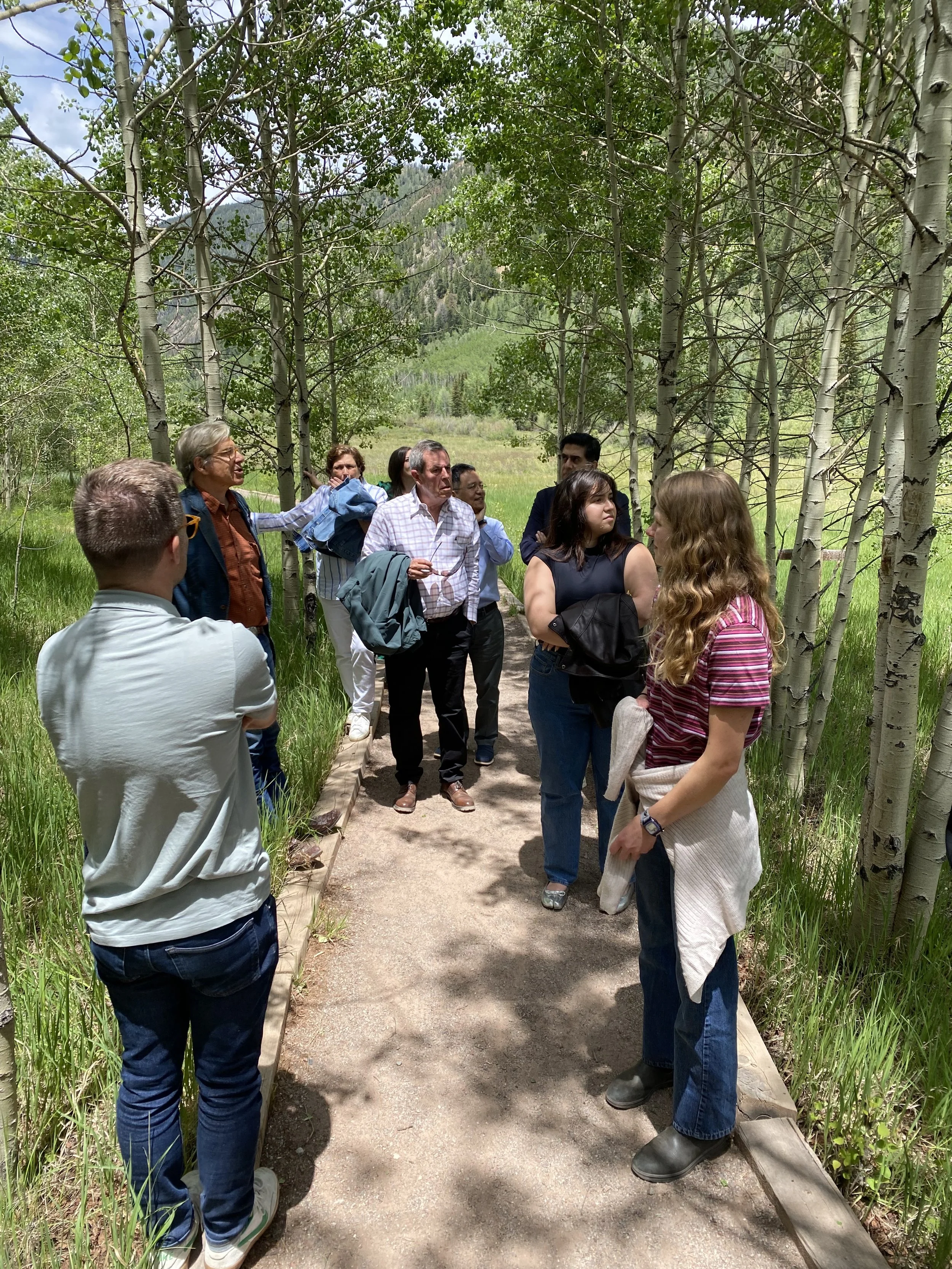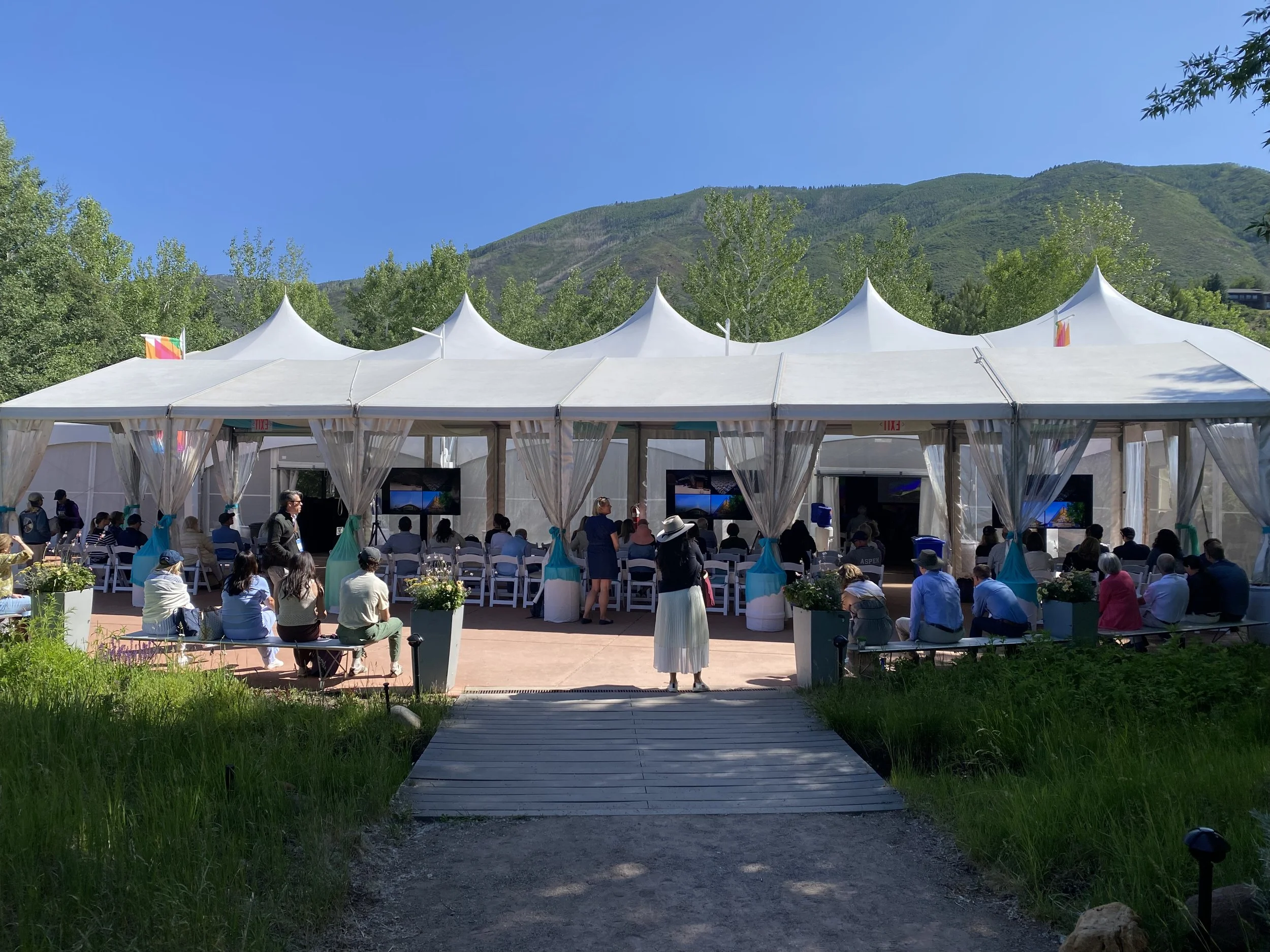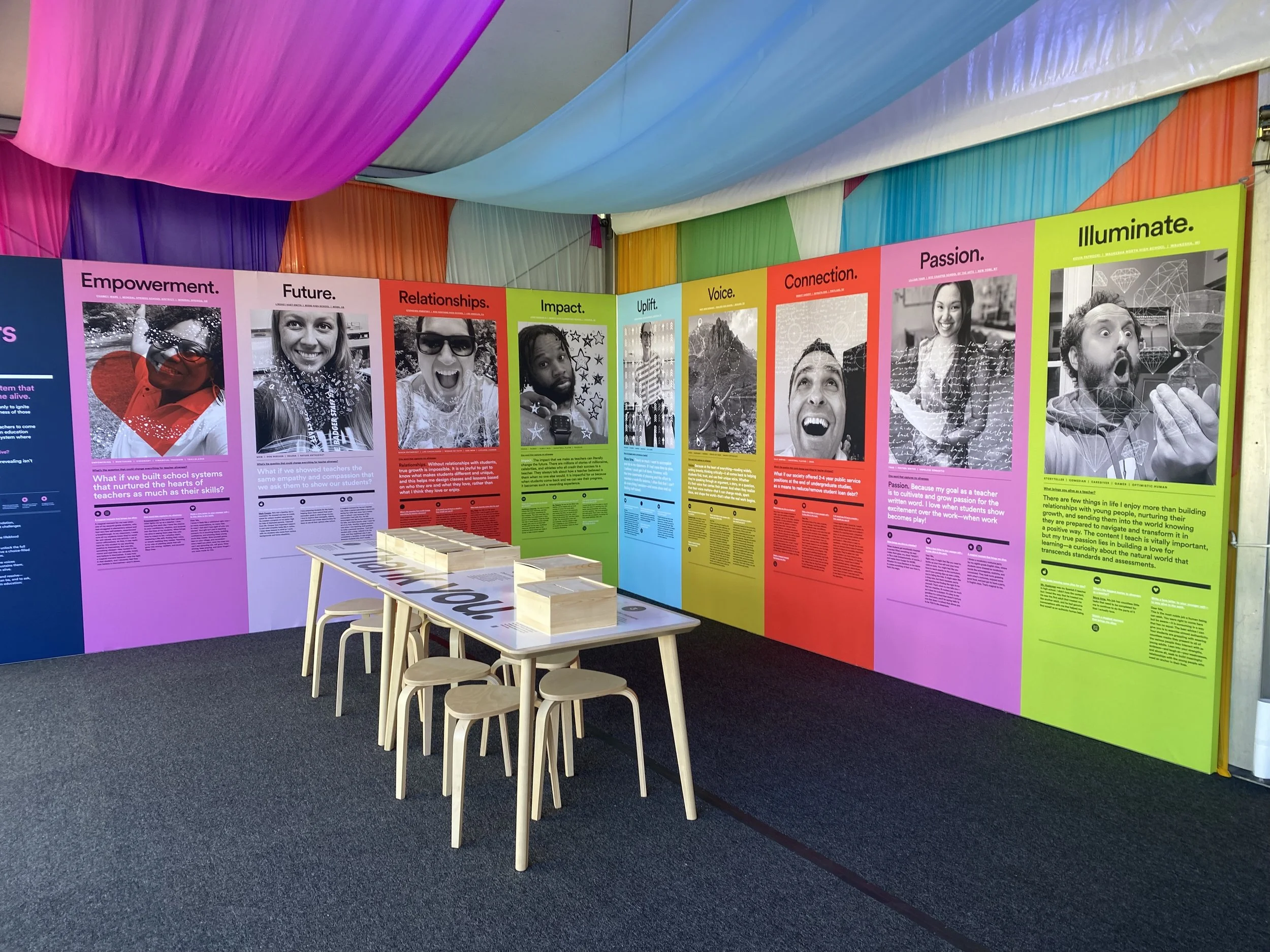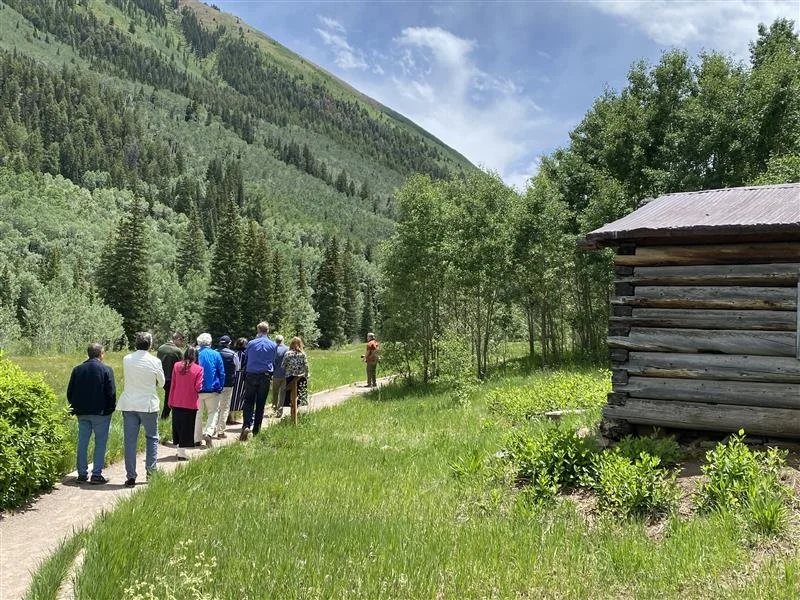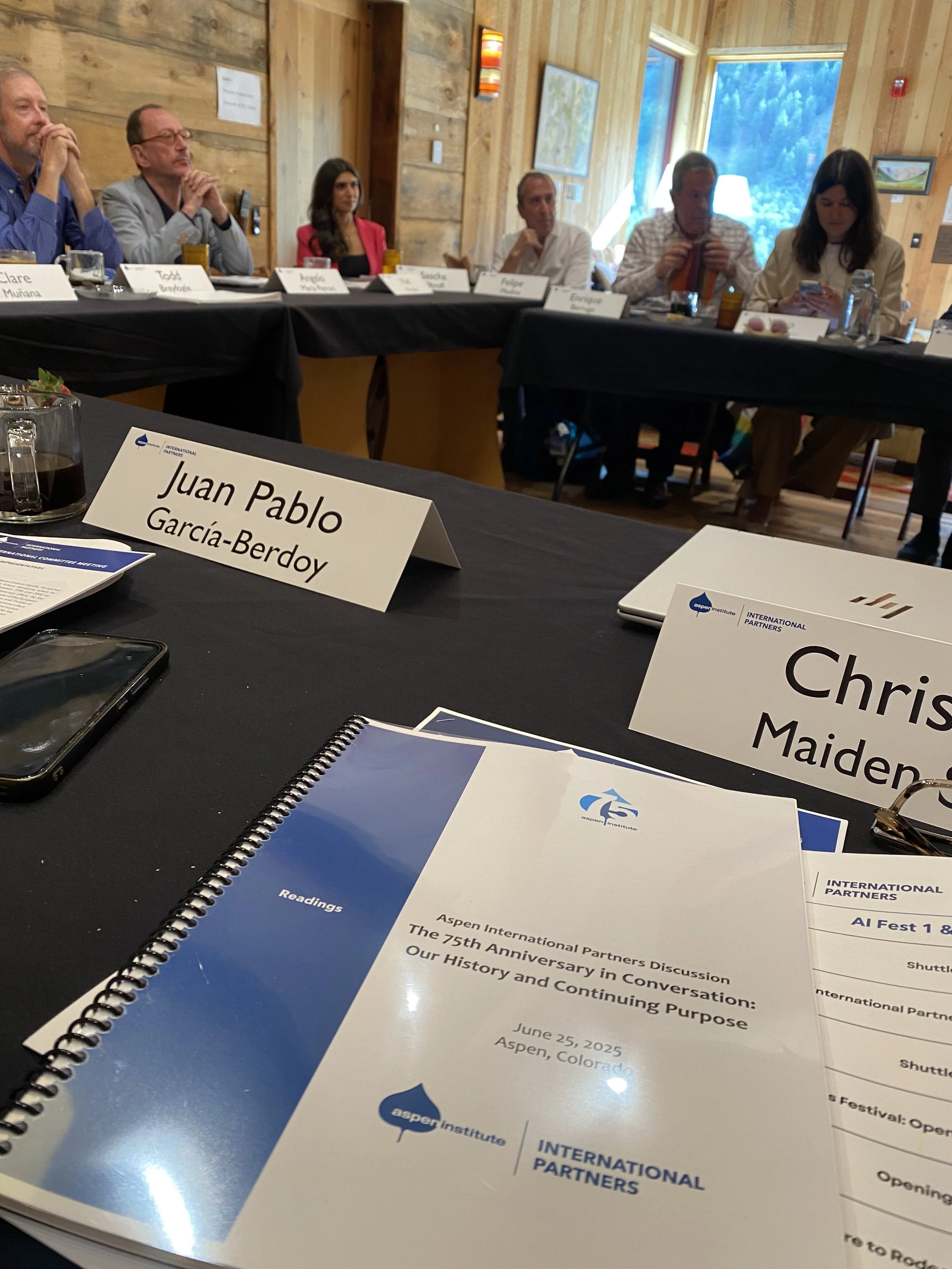Celebrating 75 Years of Vision, Values, and Impact
“The difficulty of our time is a difficulty of the human spirit.” These were the opening words of the 1949 Goethe Bicentennial Convocation, the event that would lead to the creation of the Aspen Institute. Seventy five years later, those words remain startlingly relevant. As global tensions escalate and the art of diplomacy feels like a forgotten skill, Aspen Institute New Zealand’s Chair, Katie Milne and Executive Director, Christine Maiden Sharp, joined the 75th anniversary celebrations in Aspen, Colorado - a timely opportunity to reflect on the Institute’s founding vision and the enduring importance of perspective, purpose, and principled leadership in pursuit of a better world.
75 Years of the Aspen Idea
I’m writing from Aspen, Colorado - home of the Aspen Institute - where International Partners have gathered to mark the Institute’s 75th anniversary and take part in its flagship event, the Aspen Ideas Festival.
When planning for this milestone began a year ago, few could have foreseen just how turbulent the global landscape would become. I learned of the bombing of Iran’s nuclear facilities as I stepped off the plane in Chicago en route to Aspen - a grim reminder of the kind of geopolitical instability that originally inspired the founding of this Institute 75 years ago, almost to the day.
And yet, it’s a privilege to be here - reconnecting with partners, exchanging ideas, and reflecting on a legacy that feels more vital than ever. The Institute’s founding vision, forged in the aftermath of World War II, continues to guide us: promoting a free, just, and equitable society. That vision endures thanks to the commitment of the founders, Walter and Elizabeth Paepcke, and to the global network of trustees, staff, and International Partners who carry it forward.
There are few institutions with such a rich history, and fewer still with such a distinctive mission, model and global reach. It’s a moment to celebrate what’s been achieved and to look ahead for the next 75 years.
Below is a short history of the Institute, written by Todd Breyfogle, Executive Director of Seminars.
THE ASPEN INSTITUTE - A VERY SHORT HISTORY
Summer 2024 marks the 75th anniversary of the first Aspen convening of what would become the Aspen Institute for Humanistic Studies. On June 27, 1949, several thousand participants from across the world converged on an almost abandoned silver mining town in the Colorado mountains. The Goethe Bicentennial Convocation featured lectures by distinguished Intellectuals and public figures, a rich music program, and informal conversations beneath an expansive summer sky. Why Aspen? Why Goethe?
The founding vision was that of Walter Paepcke and Elizabeth Nitze Paepcke, together with Robert Hutchins and Giuseppe Antonio Borgese. Walter Paepcke was a successful Chicago German-American industrialist and CEO of the Container Corporation of America; Elizabeth Paepcke had a capacious love of culture and nature and when she discovered Aspen was captivated by its potential as a place of intellectual and social renewal; Hutchins was an educational reformer and Chancellor of the University of Chicago; Borgese was a writer and professor who had left fascist Italy and refused to sign an academic oath of loyalty requested by Mussolini. All understood the consequences of a democratic people losing their way. All agreed that an intellectual and cultural retreat away from industrialized city life was imperative for regaining our civilizational bearings. They looked to Goethe: to the best of German, European, and human civilization, rather than its deformations. And they looked to Goethe not for his answers, but for his timeless questions, his ability to integrate the different modes of human knowing, and for his humanistic sensibility which emphasized the dignity and potential of every human being.
“The difficulty of our time is a difficulty of the human spirit.” These words opened the Goethe Bicentennial program. Organized by a committee which included novelist Thomas Mann, writer Giuseppe Antonio Borgese, conductor Bruno Walter, and playwright Thornton Wilder, the Bicentennial recognized that “the great society, fully, even distractedly, conscious of its divergences and distinctions, will not become the human community until it finds the common spirit that is man.” The committee hoped that Goethe’s humanistic spirit might inform a rebirth of thought and action in the wake of two world wars, a great depression, technology’s dehumanization of society, the threat of Soviet totalitarianism, and the destructive realities of the atomic bomb.
The Convocation’s keynote address was delivered by Albert Schweitzer, the Alsatian polymath doctor, scholar, and musician who went on to win the Nobel Peace Prize in 1953. Other lectures were given by Spanish philosopher José Ortega y Gasset, Austrian-Israeli philosopher Martin Buber, and the Indian philosopher T.M.P. Mahadevan, among many others. Elizabeth Paepcke, Clare Boothe Luce, and Elisabeth Mann Borgese held prominent roles in panel discussions. The audience included corporate and government leaders and their families, academics, artists and journalists, high school teachers, and college students who had hitch-hiked across the country for the event. An elegant, temporary tent designed by Finnish architect Eero Saarinen served as a venue; participants found lodging in the local miners’ homes. The lack of physical luxury accentuated the magnificence of mind, heart, and spirit. “We try here to undeceive and fortify ourselves,” the program concluded. “We turn here to Goethe and search him, the better to turn to and search ourselves, and cry More Light! More Light!” This pursuit of dialogue to search ourselves in the quest for a better society was infectious. In December 1949, the Aspen Institute for Humanistic Studies was born.
The Goethe Convocation contained the seeds of what was to follow. Alongside sister institutions the Aspen Music Festival and the Aspen Design Conference, the Institute was to be a place to understand the past in order to think critically about the present and creatively about the future. As an act of faith in the humanistic tradition, the Institute recognized the fundamental educational value of dialogue as a means to broaden our perspectives, deepen our relationships, and renew our capacity to put the human person at the center of our activity. In short, Paepcke wanted the Institute to be “a place where the human spirit could flourish.”
For the first twenty years, the Institute’s primary activity comprised seminars for exploring the fundamental values and texts of human civilization—most notably, the Aspen Executive Seminar, conceived and moderated by University of Chicago philosopher Mortimer J. Adler. Permanent facilities in Aspen, designed by Bauhaus artist Herbert Bayer, provided a simple but elegant campus for convenings. From the late1960s, new programs began to explore more specialized policy issues, followed soon in the 1970s by greater emphasis on international (especially Transatlantic) relations. The mid-1990s saw the addition of fellowship programs rooted in seminars, and in 2005 the Ideas Festival launched larger, more public programs of thought, arts, culture, and action.
While the Institute’s outlook has always been international, the creation of Aspen-Berlin (now Aspen Germany) in 1974 initiated Aspen International Partners as a significant organisational addition to the Aspen Idea outside of the United States. Soon other countries followed suit, with the launch of Aspen Italia (1984), Aspen France (1985) and Aspen Japan (1998). Today, the 13 International Partners (and the nascent Aspen Initiative Africa)—all independently founded, funded, and governed—conduct their own programming as part of a genuinely global network whose intellectual and social exchange is enhanced by more than two dozen fellowship programs across more than 50 countries, in a further realisation of the Goethean vision. “In his life and in his work,” the Convocation program read, “Goethe represented the universality rather than the specialisation of knowledge; humanity rather than the nation; the dignity of the individual rather than the power of the state.”
These global partnerships, alongside domestic and international programming by the Aspen Institute US, are designed to allow us all to confront and begin to address the human and social challenges facing us.
In leadership and seminar programs, policy programs, and public programs, the Institute operates in the spirit of greater human friendship—a longing to learn with and from each other, to forge mutual understanding which does not presume agreement, but which does assume a willingness to live and work together, undeceived and fortified.
“Aspen is a place,” Paepcke later wrote, “for leaders to lift their sights above the possessions which possess them. To confront their own nature as human beings, to regain control over their own humanity by becoming more self-aware, more self-correcting, and hence more self-fulfilling.”
For 75 years, the Aspen Institute has built upon these foundations as an act of faith in the possibilities of the human spirit. These foundations have expanded to be more global and more inclusive—more aware of the different modes of knowledge and experience and their value for our common life. On this day, we do well to celebrate this initial, audacious event, and to fortify and undeceive ourselves as we imagine our work for the next 75 years.
